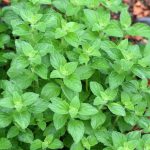 Plant without a persistent woody stem above ground.
Plant without a persistent woody stem above ground.
Plant used for medicinal or culinary purposes.
A plant, either annual, biennial, or perennial, with the stems dying back to the ground at the end of the growing season, and without woody stems.
Aromatic leaves and sometimes the flowers of plants, usually of temperate origin.
The word herb derives from the Latin name for such plants, herba. When the French adopted the word in the eleventh century, they dropped the h, spelling it erbe, and it was this form that the English borrowed in the late thirteenth century. The word retained this spelling until the sixteenth century when scholars reattached its lost h to make it look more like its Latin ancestor. In spite of the change in spelling, however, herb continued to be pronounced erb, at least until the nineteenth century when people started to say the h in a host of words in which it had previously been silent, words such as humble, history, and humour. Today, only a few words, such as honour, honest, and heir, have retained their silent h. The word herb is not related to the Herb that is short for Herbert, a name of Germanic origin that means army bright.
A plant which is non-woody or woody at the base only; some having medicinal properties.
Vascular plant with little, if any secondary growth; not woody. Also a term for plants used as culinary seasoning or for medicinal purposes.
A plant not woody, at least one which is not woody above ground level.
A plant that dies down to ground in autumn.
A non-woody plant dying back each w inter to an underground tuber, rhizome etc, or to a basal leaf-rosette, or (if an annual) lasting only one season.
In botany, any plant that does not have permanent woody stems, such as petunias and zinnias. In gardening, a plant whose leaves or shoots are added to food to enhance its flavor or used in the preparation of medicines.
